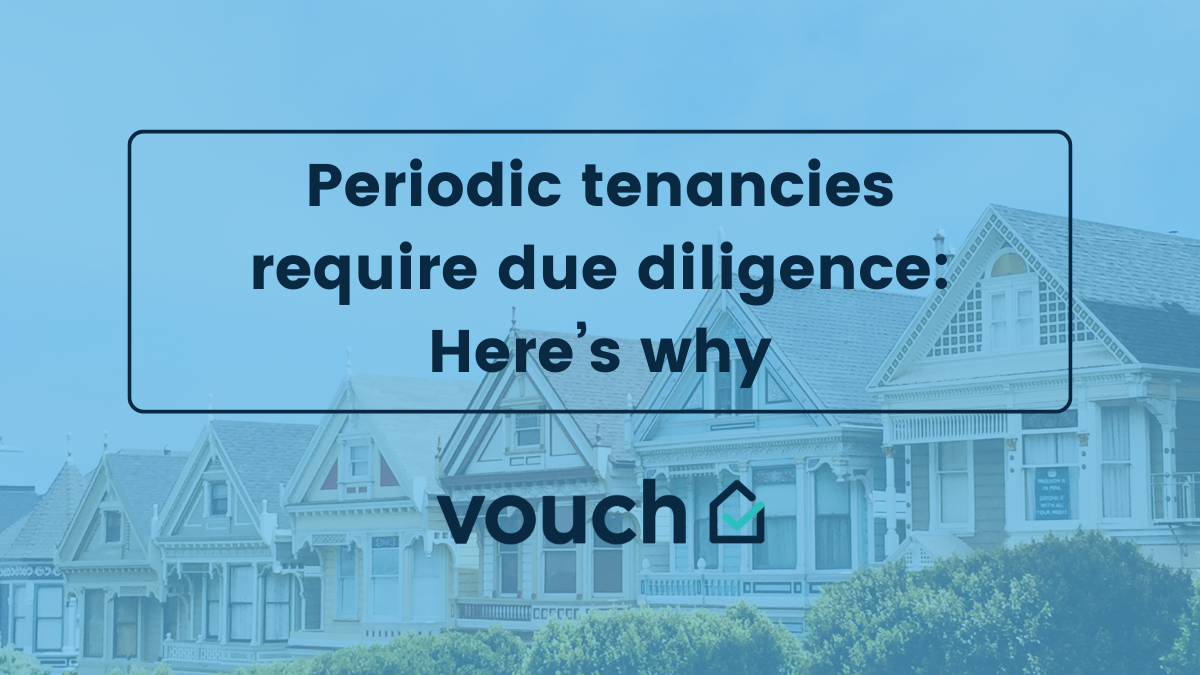With the cost of living crisis showing no signs of easing anytime soon, it’s not surprising that our data has revealed that tenants are staying put for longer, unwilling to risk rent increases and uncertainty over unsecured accommodation.
With periodic tenancies on the rise, landlords and agents are increasingly exposed to difficulties, amplified further by the change in eviction protocol.
What are the different types of tenancies?
Assured shorthold tenancy (AST)
The most common form of tenancy is an AST & most new tenancies are automatically this type. To have an AST, the property must be private, the tenants’ main accommodation and the landlord does not live at the property.
Fixed-term
A fixed-term tenancy lasts for an agreed amount of time, depending on what is set out in the tenancy agreement. Usually, this will be 12 months.
Periodic Tenancies
This type of tenancy runs for a certain period of time, most commonly month to month. They can also run on a week-to-week, or quarterly basis, although this is less common.
Unlike fixed-term tenancies, periodic tenancies work as a rolling contract which can be terminated by the landlord or tenant by giving notice.
Non-assured Shorthold Tenancy
This type of tenancy can only be used when an AST can’t be used. For example, if the rent is less than £250 or more than £100,000 per year or the property is used as a holiday home.
Excluded Tenancy
This type of tenancy applies if tenants lodge with the landlord and share communal areas.
Renters Reform Bill
Following the publication of the Renters Reform Bill this month, it’s fair to say the outcome is somewhat more radical than many in the industry had anticipated. Namely, following its implementation, landlords are only able to evict tenants under certain circumstances. This can include outstanding rent arrears or anti-social behaviour, or ‘no-fault’ reasons such as landlords wanting to move back into a property or to sell it. Landlords were told they would have six months’ notice of its first implementation date, after which all new tenancies would be periodic and governed by the new rules, signalling the end of Assured Shorthold Tenancies.
This is not necessarily a bad thing. For example, if you suddenly need to regain possession of your property, or decide you want a change, a periodic tenancy speeds up this process as you don’t have to wait until the end of a fixed period. It can also help to recruit tenants who are specifically on the lookout for a short lease contract, who otherwise wouldn’t be available to you.
For tenants, periodic tenancies mean that they will not have to give as much notice prior to leaving a property, given that the contract will be rolling. But this could present a number of challenges that should be considered by agents and landlords.
Impacts of periodic tenancies on other areas of the Private Rental Sector (PRS)
For the student lettings market, the change from ASTs to periodic tenancies may impact the number of HMOs available. That’s the opinion of Accommodation for Students, a student-focused search engine.
Currently, there is a good variety of accommodation available to students. This includes university and PRS provided purpose-built flats, as well as shared housing, or HMOs provided by student landlords.
Plans to ban fixed-term tenancies as part of the Renters Reform Bill and transition all tenancies to a periodic tenancy system would mean that students wouldn’t be required to leave their HMO at the end of their tenancy (usually the end of the academic year).
This would mean that spaces in these properties would not be able to be guaranteed by the landlord for the next lot of students at the start of the next academic year. This could see landlords choosing to leave the market, and thereafter reducing the choice of accommodation options for students.
Accommodation for Students says it has already seen the impact following a similar change in law in Scotland, with students struggling to find suitable accommodation.
“It is, in my view, vital that the government exempts private student landlords from its proposal to move all tenancies to periodic ones, as it has for institutional landlords who run Purpose Built Student Accommodation (PBSA). Failing to do so will force private landlords out of the market, reducing the mix of affordable options and driving up rents for students who are already on a limited budget.” – Simon Thompson, Director, Accommodation for students.
Impact of periodic tenancies on PRS as a whole
Understandably, periodic tenancies are more likely to attract tenants looking for more transient, shorter leases. Having a high turnover of tenants will not only cost more in terms of referencing and marketing, but it’ll also mean landlords must deal with a shorter turnaround time if a tenant decides to vacate unexpectedly, which will likely increase void periods and cost money.
If your tenant moves out during a ‘notice to quit’ period, landlords may be liable for paying council tax for the property for that month. This can be avoided, by ensuring you have a contractual periodic tenancy agreement in place to ensure this remains the tenant’s responsibility for a given length of time.
Difficulties for landlords and letting agents
With period tenancies opening up the rental market to an expanded pool of people, reports of fraud are on the increase. Fraudsters are becoming more sneaky at using the tech readily available to them to fake documents and contracts. Agents must recognise this as an issue and seek to address it quickly. They should also educate their landlords on why thorough checks and due diligence are as important as ever.
Although they come with their own set of challenges, periodic tenancies can be a good idea for all parties. They can offer increased flexibility and reduce the number of administrative tasks required throughout a tenancy. A number of steps can be taken to mitigate these challenges, such as;
- Always draw up a contractual periodic tenancy agreement
- Ensuring your property marketing is on point to avoid extended void periods
Using trusted suppliers for tenant referencing and right-to-rent checks is also a good call. This will minimise further the risk of being provided with falsified documents.
The lettings landscape is mid-shift, as a combined result of the pandemic, cost of living crisis and renters reform bill. What this means long-term is yet to be seen. What is certain is that landlords must be vigilant and stay ahead of the ball in order to maintain consistency.




